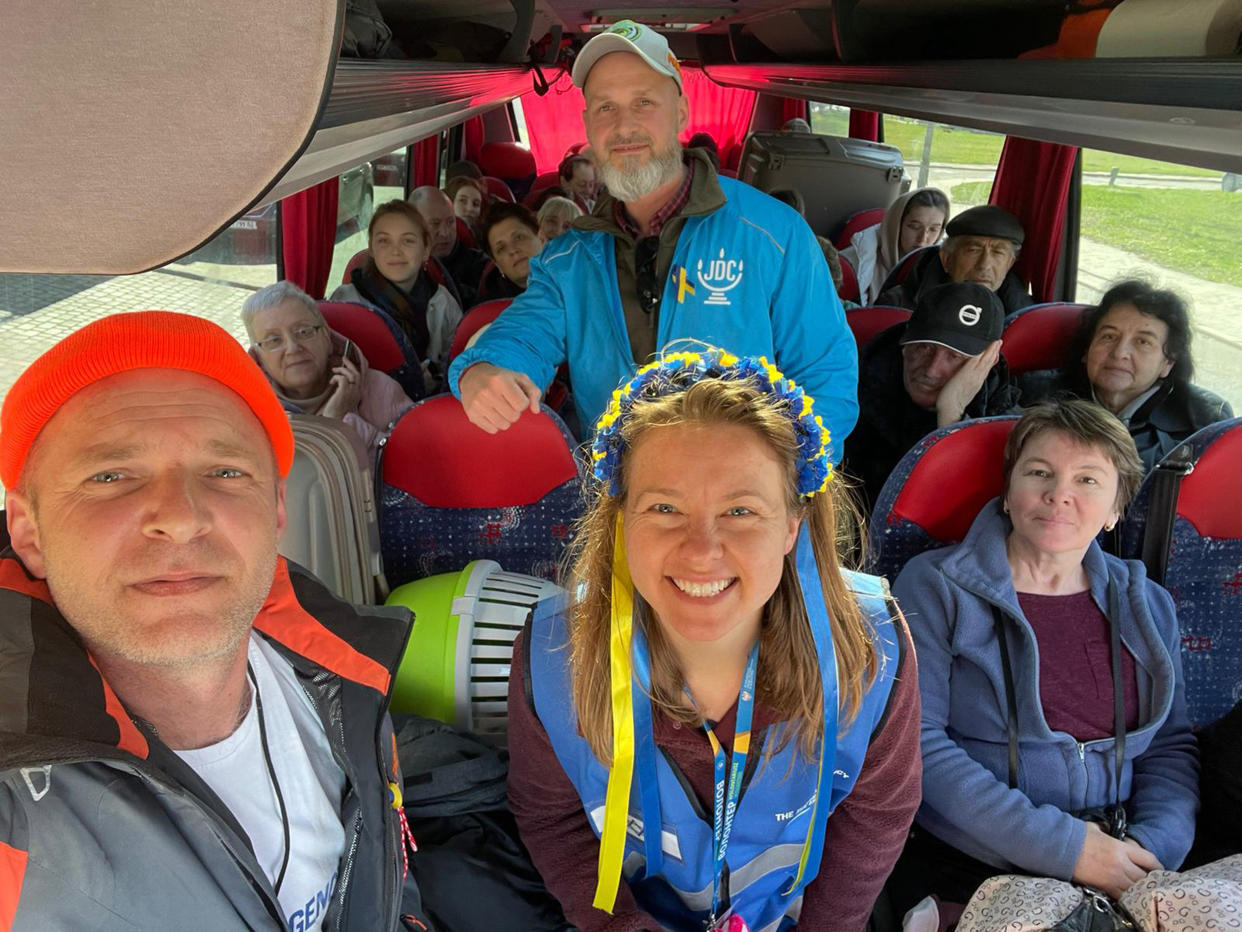Ukrainian refugees to gather for Passover Seder near Warsaw Ghetto uprising site
Nearly eight decades after Polish Jews trapped in the Warsaw Ghetto rose up against their German occupiers, a group of Ukrainian refugees will gather near the sacred site Friday to celebrate Passover.
Helping lead the traditional Seder meal in Warsaw will be a Ukrainian American Jew descended from Holocaust survivors who left Ukraine for Israel as a child. She is in Poland aiding Ukrainian refugees who fled their homeland because of the Russian invasion.
“The fact that we’re here, that we’ve been able to help as many people as we have, is, frankly, mind-blowing,” said Ana Sazonov, 34, who heads the Jewish Federation in Columbia, South Carolina.
The Jewish Federations of North America, which have raised $50 million to aid Ukraine, will also help sponsor Passover Seders on Friday in other major European cities that have taken in Ukrainian refugees, including Budapest, Hungary.
But there will be a side of solemn symbolism at the Seder in Warsaw, where a third of the population was Jewish before the Germans wiped them out during the Holocaust.
“I expect there will be about 200 of us, refugees, aid workers and others,” Sazonov said of the Seder, which is being hosted by the Jewish Agency for Israel in partnership with the UJA-Federation of New York. “And we’ll all be celebrating the holiday of freedom.”

The Ghetto Uprising erupted on the eve of Passover in 1943 when hundreds of Jewish fighters, armed with weapons supplied by the Polish Underground, took on the Germany army. And just like the war in Ukraine, it was a David-vs.-Goliath fight.
But while the revolt by the outgunned Jews of Warsaw was eventually crushed, the Ukrainians have so far managed to stymie the invaders.
"It's still a very dangerous situation in Ukraine," Sazonov said in a telephone interview.
For weeks, Sazonov has been working with other Jewish Federation aid workers on the Polish border helping Ukrainians fleeing their homeland.
While they’ve been able to help thousands of Jewish refugees get safely to Israel and to other destinations in Europe, Sazonov said, they haven’t limited their assistance to Jewish Ukrainians.
“I believe in the concept of Tikkun olam, which means taking care of everybody, as well as the Jews,” Sazonov said. “I believe this is our obligation, our duty to the world.”
Sazonov knows what it’s like to be uprooted. She is from Berezne, a small city in western Ukraine.
That she’s even alive is due in large measure to her non-Jewish great-grandfather, who saved his Jewish wife and children from the Nazis by putting them on a train to Russia ahead of the advancing German army during World War II.
“That’s what saved them,” she said. “If he hadn’t, most likely they would have been killed with the other Jews.”
There were Jewish rescuers on her mother's side of the family, as well, Sazonov said.
"My mom's side of the family, both of her grandparents saved many Jews," she said. "My great-grandfather sneaked them into the woods so they can join the partisans. And my great-grandmother hid her neighbor for a long time in her basement. All this was in Berezne."
Sazonov said her Jewish heritage was kept largely under wraps when she was growing up and that she and her parents left for Israel in the 1990s after the collapse of the Soviet Union.
“In Israel, that was when I really discovered and embraced my Jewish identity,” she said.
Sazonov moved to the U.S. five years ago, but she maintained ties with family and friends still in Ukraine. She said her parents were visiting friends in Ukraine a few weeks before the Russians invaded.
“When the war broke out, I dropped everything and came here,” she said. “I felt compelled to help.”
